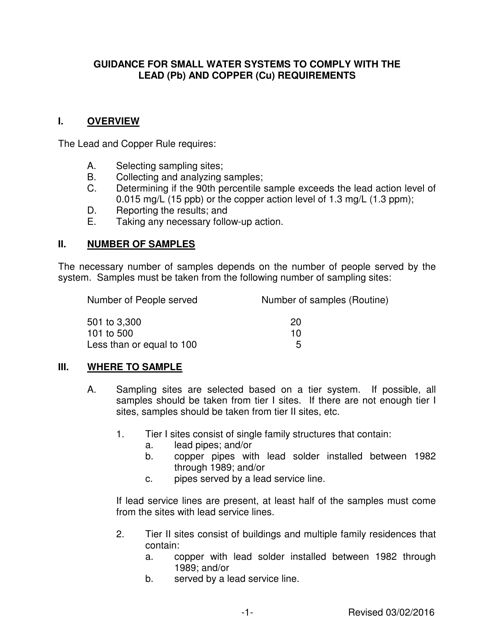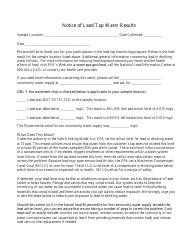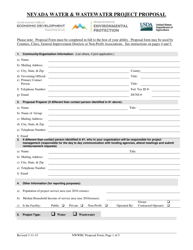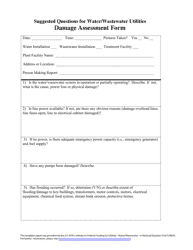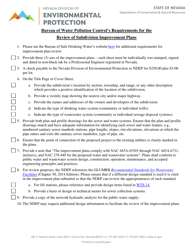Guidance for Small Water Systems to Comply With Lead and Copper Requirements - Nevada
Guidance for Small Water Systems to Comply With Lead and Copper Requirements is a legal document that was released by the Nevada Department of Conservation and Natural Resources - a government authority operating within Nevada.
FAQ
Q: What are lead and copper requirements for small water systems?
A: Lead and copper requirements are regulations aimed at reducing levels of lead and copper in drinking water to protect public health.
Q: What is a small water system?
A: A small water system is a water system that serves fewer than 10,000 people and is not a public water system.
Q: What should small water systems do to comply with lead and copper requirements?
A: Small water systems should conduct regular monitoring and testing for lead and copper levels, implement corrosion control measures, and take actions to reduce lead and copper levels if they exceed the allowable limits.
Q: Why are lead and copper levels in drinking water a concern?
A: Exposure to high levels of lead and copper in drinking water can have detrimental effects on human health, particularly in children and infants.
Q: Who enforces lead and copper requirements for small water systems in Nevada?
A: The Nevada Division of Environmental Protection's Bureau of Safe Drinking Water is responsible for enforcing lead and copper requirements for small water systems in Nevada.
Form Details:
- Released on March 2, 2016;
- The latest edition currently provided by the Nevada Department of Conservation and Natural Resources;
- Ready to use and print;
- Easy to customize;
- Compatible with most PDF-viewing applications;
- Fill out the form in our online filing application.
Download a printable version of the form by clicking the link below or browse more documents and templates provided by the Nevada Department of Conservation and Natural Resources.
